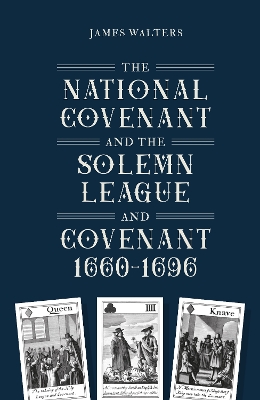Studies in Early Modern Cultural, Political and Social History
1 total work
The National Covenant and the Solemn League and Covenant, 1660-1696
by James Walters
Published 12 April 2022
Until now, scholarship on the Covenants has mainly focussed on their role in the conflicts of the 1640s, with discussion of the Covenants after 1660 mostly limited to the context of violent Scottish radicalism. This book moves beyond a rigid focus on Scotland to explore the legacy of the Covenants in England. It examines the discourse surrounding key events in the Restoration period and traces the influence of the Covenants in the context of radical Presbyterianism, and in mainstream debates around politics, church government, and the constitution of the British kingdoms.
The Covenants continued to have relevance in two primary respects. Firstly, the Covenants were used as reference points for discussing the competing legacies of the English and Scottish Reformations and the confused issues of church and state that defined the Restoration period. Furthermore, the form of the Covenants as solemn individual subscriptions to a constitutional and religious model, and the political ideas that underpinned them, were emulated by those seeking to resist royal authority during the Exclusion Crisis of 1679-81, and during the events surrounding the Revolution of 1688. Thus, this book holds particular interest for students of constitutionalism, legal pluralism or civil religion in seventeenth-century Britain, and for those seeking to deepen their understanding of the intellectual origins of the Wars of the Three Kingdoms and the Revolution of 1688-9.
The Covenants continued to have relevance in two primary respects. Firstly, the Covenants were used as reference points for discussing the competing legacies of the English and Scottish Reformations and the confused issues of church and state that defined the Restoration period. Furthermore, the form of the Covenants as solemn individual subscriptions to a constitutional and religious model, and the political ideas that underpinned them, were emulated by those seeking to resist royal authority during the Exclusion Crisis of 1679-81, and during the events surrounding the Revolution of 1688. Thus, this book holds particular interest for students of constitutionalism, legal pluralism or civil religion in seventeenth-century Britain, and for those seeking to deepen their understanding of the intellectual origins of the Wars of the Three Kingdoms and the Revolution of 1688-9.
